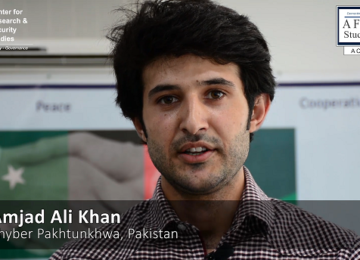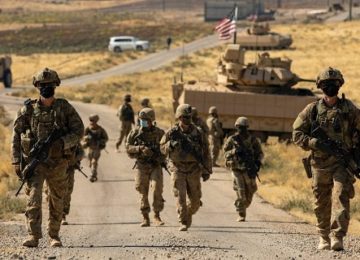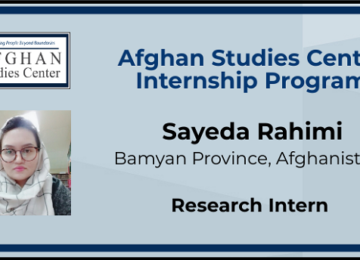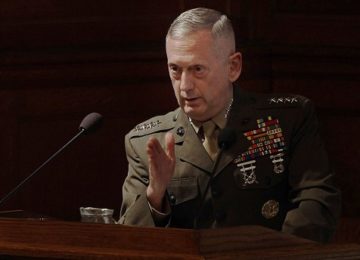(Special contribution to Afghan Studies Center by Dr. Huma Baqai)
Perhaps the only thing new about his new Afghan policy is that Trump gets a reality check; the ‘candidate’ Trump had called US military involvement in Afghanistan a “total disaster,” what he has unveiled today is more of the same.
A military commitment to Afghanistan which is now not time bound but condition bound. Conditions in Afghanistan have only deteriorated with no improvement in sight. There is no change in policy, only packaging is somewhat new. The WANTS are a wish-list, whereas the HOWS are once again missing.
The sixteen-year-old conflict has no real success on the ground. The Taliban are stronger, more ferocious, and the Afghan government weak, inefficient, fragmented and corrupt. The outcome is of course not pretty.
The latest report of the Special Inspector General for Afghanistan Reconstruction (SIGAR) categorically says that the Afghan government has actually lost control of further 5 percent of its territory to the Taliban since the beginning of 2017.
It further claims that the area under the control or influence of the Afghan government has decreased to just 52 per cent of the nation’s districts in 2017 with half the country either contested or under their control, compared to 72% in November 2015. In volatile Helmand province, the Taliban are contesting for 10 of the 14 districts. The Afghan government now roughly controls 60% of administrative districts with 29% under dispute and 11% in the hands of Taliban.
The civilian casualties connected to the conflict were around 11,418 in 2016 and there was also a significant increase in internal displacement, where 660,000 fled their homes due to fighting; the highest number recorded since the US invasion. This is notwithstanding the spending of more than $117 billion on different development schemes by the US. The country still remains near the bottom of most human development index, largely because of the corrupt Afghan government which is incapable of effectively governing and handling the security situation of the country.
According to a Transparency International report, Afghanistan stands at 166 of 168 in its Corruption Index and an eighth of all the money that goes to Afghanistan is lost to corruption. American spending to reconstruct Afghanistan now exceeds the amount spent to rebuild all of Western Europe under the Marshall Plan. The United States has also invested $70 billion in rebuilding Afghan security force. Afghan security forces continue to be plagued by the problem of inflated rolls and ghost soldiers with local commanders pocketing American-supplied funds to pay for nonexistent soldiers. The United States has also spent $8.5 billion to battle narcotics in Afghanistan – but opium production in 2016-17 has reached an all-time high. The failures of American war strategy in Afghanistan are both glaring and humiliating.
Even, in spite of budget deficits, cost over runs, members of US national security apparatus, elected and appointed officials, senior military officers, and other policy insiders, accept war as an ongoing normal way of life. Andrew J. Bacewich in his article “The never-ending war in Afghanistan”, observes War in Washington has just become more tolerable; an enterprise to be managed rather than terminated as quickly as possible.
The long-lasting solution to the Afghan conflict lies in the re-building of region based political consensus that may produce a political settlement among all the elements of Afghan society, including the Taliban, rather than adherence to the battlefield. This requires that the Afghan government and the people, the United States and regional stakeholders agree on a negotiated framework for an inclusive peace process.
The author, Dr. Huma Baqai, is an Associate Professor, Director Public Affairs and Communication and former Chairperson, Department of Social Sciences, IBA, Karachi. She has remained associated with the media for the past several years both as an analyst and anchorperson. She has also remained a part of CRSS’s Pakistan-Afghanistan Track 1.5/ II initiative titled Beyond Boundaries.
© Center for Research and Security Studies (CRSS) and Afghan Studies Center (ASC), Islamabad.








